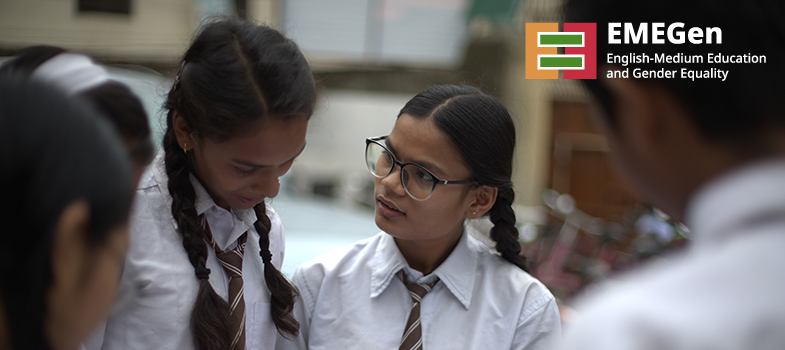Introduction to the EMEGen OER
Introduction
These Open Educational Resources (OER) are based on evidence from British Council/Open University research in Nigeria and Nepal: English-Medium Education in Low and Middle Income Contexts: Enabler or Barrier to Gender Equality?
The research into English Medium Education and Gender (EMEGen) explored the opportunities and challenges of English for girls and boys in secondary schools. The EMEGen research evidence includes:
- classroom observations
- interviews with secondary school leaders and teachers
- interviews with secondary school students and their parents
- student journals.
Open Educational Resources (OER) are activities for professional learning and development. The EMEGen OER are designed to be used within your normal practices and routines. You can do the activities on your own, or with peers. EMEGen OER are for direct use by secondary school leaders, classroom teachers and informal learning facilitators. You can:
- repeat the activities with variations or adaptations
- extend the activities
- share the activities with other school leaders, teachers and facilitators
- use the activities for meetings, training or action research.
The OER can be used in multilingual contexts and can be adapted for majority and minority languages in the classroom, and single-sex and co-educational/mixed-sex contexts. The OER activities can be used for action research, workshops, Continuing Professional Development (CPD) or Plan Do Study Act (PDSA) continuous improvement cycles. When you do the activities, you might have questions you would like to find out about. The activities may give you ideas to discuss further, with other teachers, school leaders or informal learning facilitators.
The EMEGen OER focus on improving opportunities for girls and all students to participate and learn. The activities are based on global evidence that one of the most effective ways to raise girls’ learning is by improving the pedagogy of teachers (Evans and Yuan, 2022).
According to a review of evidence from 267 educational interventions in 54 low- and middle-income countries, effective programmes to improve girls’ learning do not necessarily need to be specifically girl-targeted. The most impactful educational intervention is the teacher.
Evans, D. K. and Yuan, F. (2022) ‘What We Learn about Girls’ Education from Interventions That Do Not Focus on Girls’, The World Bank Economic Review, 36(1), pp. 244–267.
